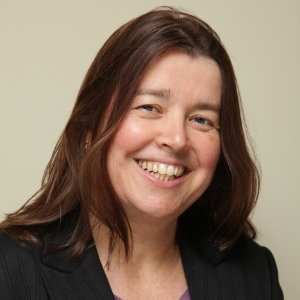Director of Policy and Public Affairs at Fairtrade Foundation
Apart from your current organisation which other organisations that campaign do you admire and why?
So many! Greenpeace continues to be both brave and innovative – not least the Russian illegal detention of the Arctic Sunrise 30, but also their ability to drive serious issues with a sense of fun – I loved their Star Wars campaign to turn Volkswagen from the ‘dark side’ and the Chainsaw Barbie campaign to Mattel. I’m impressed how38 Degrees has woken everyone up to the power of online in driving nimbleness and democratisation of mass-scale campaigning that every organisation can learn from, and springboarding from online to focussed local organisation and direct action. Traidcraft did an awesome job as part of the successful campaign to win the establishment of a Grocery Code Adjudicator – a supermarket watchdog with teeth – and continues to plug away solidly on trade justice issues where many other NGOs have flagged!
Generally are organisations getting better at campaigning since you began your career? If so, what’s changed?
I think campaigns have got smarter in terms of pushing for specific policy or public goals, and in being creative in how they seek to reach the public and their targets. I do think we’ve lost ground a little on local and grassroots organisation – traditional NGO campaigning has become much more individual action oriented, but at Fairtrade, we have great experience of the power of local mobilisation. Fairtrade towns campaigns have been the backbone of building public awareness and applying change and pressure on companies and public authorities, and we’re proud of that!
Which campaigner inspires you most?
It’s probably clichéd right now to say it, but Malala is pretty awesome – such bravery and such maturity at such a young age. She never asked to be in a global spotlight, and I have occasionally worried about Western media or political manipulation. But you only have to listen to one interview with her to know that she has all the great qualities of a legendary social justice campaigner. Loved her response to the Nobel Peace Prize outcome – that winning peace is more important than winning prizes!
What three attributes make a good campaigner?
Firstly vision – a clear sense of the change you seek – vision requires you also to understand the world and power dynamics you’re dealing with. Second, dogged perseverance – very few campaigns are won overnight and most get knockbacks, so refusing to give up, and looking for new ways around obstacles is critical. Thirdly, creative flexibility – being able to react and adjust plans if they’re not working, or find a new creative way of bringing the campaign alive again if it’s flagging, or seizing quickly on a new opportunity you hadn’t seen at the outset.
What’s the most rewarding or exciting campaign you’ve worked on and why?
The massive mobilisation for Jubilee 2000/Drop the Debt Campaign from 1997-2002 was a pretty exciting time for international development and economic justice campaigning. With hindsight, we didn’t always get it right, and of course it’s still not been won, but it was an amazing global effort, especially in the global South, and delivered some good progress in writing down some of the excessive debt burdens and challenging the nature of conditions being imposed. Our campaign for Fairtrade bananas since 2000 has been pretty successful – around 1 in 3 bananas sold today are Fairtrade – and we’ve had great fun with it, but more to the point, I’ve had the privilege of seeing its positive impact for banana farmers and workers. Again we’ve not yet reached our goal and need to turn the tables now – campaign for there to be no unfair bananas left in the UK, until the industry as a whole is delivering living wages and sustainable livelihoods for banana workers and farmers. If we can do that on bananas, it could be an iconic victory that could spill over to other global supply chains and business practices.
How do you feel campaigns will change over the next five years?
There’s going to be a push for even greater transparency of information and decision making, at local, national and international level – whether it’s campaigning health or child welfare, or private sector responsibility and corporate accountability or local and national government policy. People will take more matters into their own hands as we go further into an open access era of campaigning – technology is putting more power to campaign in the hands of many more people, by making information more accessible, creating new networks that transcend local or national boundaries, but also potentially to find their own solutions through peer-to-peer or shared economy, as we’re seeing in lending, community energy generation, car sharing etc. In Fairtrade we’re calling it ‘Unlocking the Power of the Many’!
What advice would you give someone starting their career in campaigning today?
Get stuck in with both your heart and your head – focus on something you really believe in and care about, but also make sure you do the hard graft study of the politics and the gritty details, so you know your stuff and can apply political intelligence alongside your passion for change. If you’re just setting out and seeking a first step on the ladder, consider volunteering or an internship with a campaigning organisation or team – I know many people who gave their time in the first instance, built up their skills, knowledge and experience, started at the bottom but went on to paid campaigning roles in organisations they have really wanted to work for.
If you weren’t a campaigner, what would you be?
Dead?


